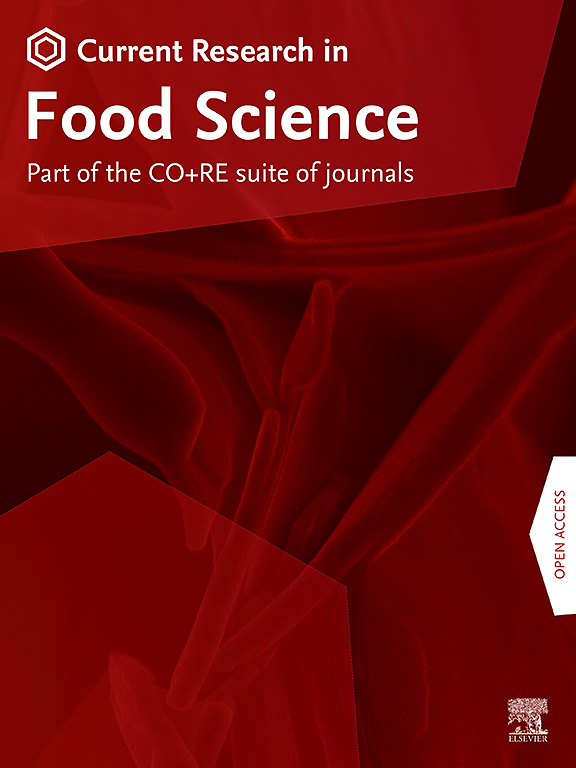Tasting through the lens of the mind: The impact of personality and mental health on wine sensory and psychoactive effects
IF 6.2
2区 农林科学
Q1 FOOD SCIENCE & TECHNOLOGY
引用次数: 0
Abstract
Wine is not only a widely consumed beverage but also a sensory and psychoactive experience influenced by individual characteristics. This study aims to investigate the extent to which personality traits and mental health conditions affect the perception of taste and the psychoactive effects of organic and traditional wine. Specifically, we examine whether differences in wine perception and effects can be attributed to the wine's production method or to individual psychological traits. A total of 133 regular wine consumers participated in a double-blind study, consuming both organic and traditional wine in separate sessions. They rated taste characteristics (intensity, duration, and pleasantness) and the stimulant and sedative effects of each wine. Additionally, personality traits (Big Five and Dark Triad) and mental health conditions (happiness, anxiety, and depression) were assessed to explore their impact on wine perception and effects. Results showed no significant differences in taste intensity or pleasantness between organic and traditional wine, with only a weak difference in taste duration, where traditional wine had a slightly longer-lasting flavor. However, differences emerged in wine effects: organic wine induced a higher stimulant effect, while traditional wine produced stronger sedative effects. Personality traits and mental health played a key role in shaping these effects. Machiavellianism and happiness were associated with increased stimulation for both wine types, while narcissism predicted higher stimulant effects only for organic wine. In contrast, sedative effects were linked to higher levels of narcissism and depression, with extraversion reducing sedative responses in traditional wine. These findings suggest that wine perception is not solely determined by its chemical composition but is shaped by individual psychological factors. This research highlights the importance of considering personality and mental health in understanding consumer experiences, offering insights for both the wine industry and psychological research on alcohol-related behaviors.

求助全文
约1分钟内获得全文
求助全文
来源期刊

Current Research in Food Science
Agricultural and Biological Sciences-Food Science
CiteScore
7.40
自引率
3.20%
发文量
232
审稿时长
84 days
期刊介绍:
Current Research in Food Science is an international peer-reviewed journal dedicated to advancing the breadth of knowledge in the field of food science. It serves as a platform for publishing original research articles and short communications that encompass a wide array of topics, including food chemistry, physics, microbiology, nutrition, nutraceuticals, process and package engineering, materials science, food sustainability, and food security. By covering these diverse areas, the journal aims to provide a comprehensive source of the latest scientific findings and technological advancements that are shaping the future of the food industry. The journal's scope is designed to address the multidisciplinary nature of food science, reflecting its commitment to promoting innovation and ensuring the safety and quality of the food supply.
 求助内容:
求助内容: 应助结果提醒方式:
应助结果提醒方式:


